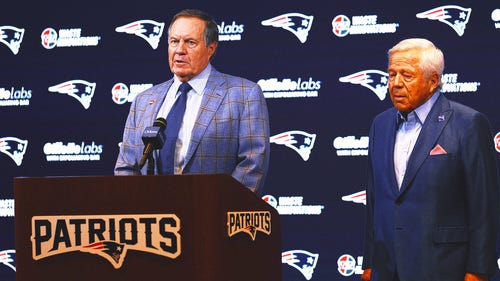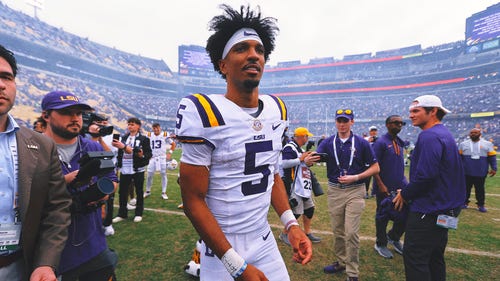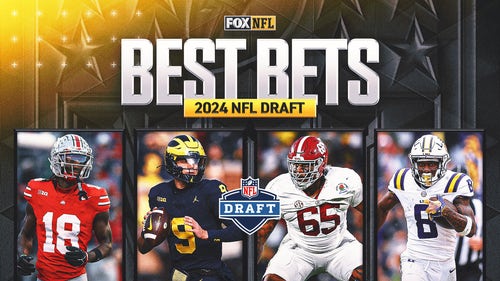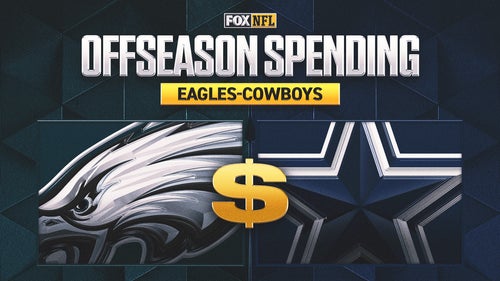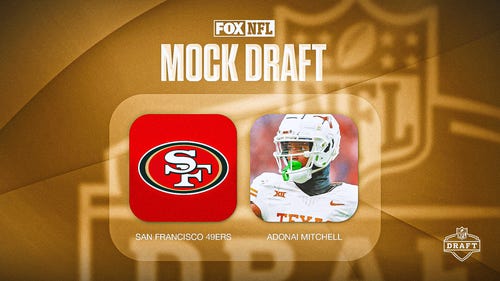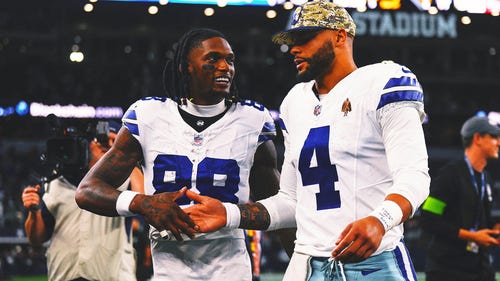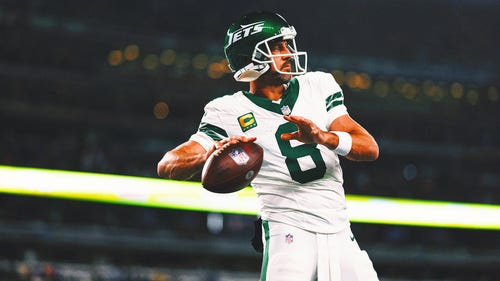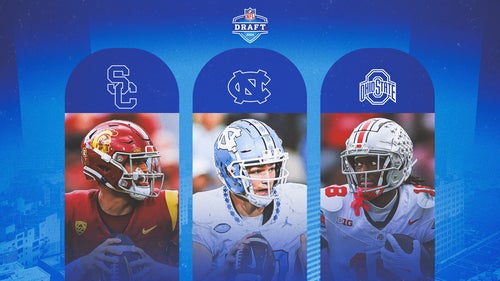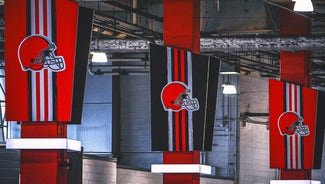
Understanding sports takes thought, not math
We would prefer not to think in this country.
That was the point of my sabermetrics column last week, the column about the movie “Moneyball,” the column that seemingly turned the blogosphere against one of its staunchest supporters (me).
We, Americans, are intellectually lazy. That’s not groundbreaking perspective. It’s fact. It’s a generalization, but it’s one I believe. Collectively we prefer not to think. It’s too much trouble. It interferes with video games, the Kardashians and Glenn Beck.
I do not hate sabermetrics/analytics. I hate the way they’re being used as an excuse to turn off our brains and avoid thought. Numbers can and do lie. They’re only as accurate as the thought that goes into interpreting them.
As my favorite character from “The Wire,” Jimmy McNulty, would say, “You can juke the stats.”
As a journalist, as a student of life, I’m pro-thought. Deep thought. I want to understand and explain the gray areas of life. My value as a sports columnist is in my ability to interpret human behavior. The overreliance on numbers is getting in the way.
This week, in trying to evaluate Michael Vick’s complaint that NFL refs are not affording him the same protection as other superstar quarterbacks, smart people argued the debate was settled by statistical information.
Michael Vick and the Eagles drew more roughing-the-passer penalties than their peers in the NFC East. Discussion over. Settled. There is no merit to Vick’s complaint.
I disagree. There are gray areas, which include but are not limited to: Andy Reid’s pass-happy offense; Philly’s bootleg-prone passing game; Vick’s difficult-to-anticipate movement in the pocket; a defensive player’s belief that certain QBs (Peyton Manning and Tom Brady) receive special attention from the refs.
Vick voiced his concerns in the frustrated moments after a tough loss. He’s a football player, not a columnist or a broadcaster. It was the media’s job to interpret what he was really saying.
I interpreted Vick’s comments this way: “The league — from Roger Goodell to the refs to the TV broadcasters calling the games — has created the perception with defensive players that you’d better think long and hard before hitting Manning and Brady. That perception benefits Manning and Brady and they take fewer questionable hits than I do. I’d like the same protection. I draw TV ratings, too.”
I think there are kernels of truth in that perspective. I’d enjoy debating that perspective with Merrill Hoge, Trent Dilfer and several of the other respected NFL analysts who criticized Vick for whining about, in their minds, nothing. We can use stats to enhance and/or support our positions. But we don’t have to pretend that stats end the discussion. They don’t.
During the NBA season my good friend Dan Le Batard and I bickered about LeBron James and the Heat. Le Batard has one of the brightest minds I’ve ever encountered. Unfortunately, he’s fallen in love with the microphone and analytics.
Because of point differential, Le Batard was steadfast in his belief the Heat would advance to the NBA Finals and win it. I was steadfast in my belief that LeBron’s moody personality would rear its head and undo the Heat in the playoffs, most likely against the Chicago Bulls. I had watched virtually every Heat regular-season game and noticed the Heat had trouble snapping out of playing funks. Losing lingered in Miami. It took the Heat three or four games to recover from adversity. I attributed that to LeBron’s moodiness and the impact of his personality on the entire team.
You lose three or four games in a row in the playoffs and you lose the series.
Injuries to Shaquille O’Neal and Rajon Rondo stopped Boston from testing the Heat. The Heat exposed that Derrick Rose didn’t have the right supporting cast. When the Heat jumped to a 2-1 NBA Finals advantage over the Mavericks, I reluctantly gave up on my season-long position. I assumed the Heat would go through the entire playoffs without taking a shot in the mouth. No adversity. No LeBron mood swing. Heat win the championship.
I wasn’t patient enough. Dirk Nowitzki punched the Heat square in the jaw. And guess who went into a shell?
I’m not saying Le Batard and the analytics crowd were wrong. The Heat led the league in point differential at plus-7.5 and advanced to the Finals. I didn’t think Miami would make it out of East. Dallas was eighth in point differential at plus-4.2.
The point I kept making to Le Batard all season was that, as a journalist and talk-show host, he was best served writing and talking about the people more than the stats.
Do you not agree? I want to discuss and analyze how fame, money, ego, insecurity, ambition, childhood scars, etc. impact the athletes, coaches and executives who power the teams we love.
As a former college football player and career-long sportswriter, I completely understand how valuable stats are in preparing for and understanding the games. I’m not anti-stats. I’m pro-valuing thought over stats.
Numbers can be perverted, easily misunderstood. Let me give you one more example. Over the past six weeks, I’ve continued to monitor, explore and research the controversial story involving former booster Nevin Shapiro and the Miami football program.
Much of the original story’s credibility was built on numbers: 72 players, 11-month investigation, nearly 100 interviews, 20,000 financial documents, millions of dollars allegedly spent on athletes.
One of my original criticisms of the Yahoo! Sports story that ignited The U controversy was that the use and sale of drugs was absent from the narrative. The absence made no sense and caused me to suspect Shapiro’s stated motives (feelings of betrayal) for doing the story.
Sure enough, three to four weeks after the story was published, court papers filed by Barbara Murray, a woman with ties to Shapiro’s stepfather, alleged that Shapiro and his stepfather laundered drug money for an overseas terrorist organization.
Shapiro is required to give the government an explanation of what he did with the money he stole through his Ponzi scheme. Blowing millions of dollars on Miami football players is a relatively safe explanation. Federal prosecutors don’t really care about NCAA rules violations. Plus, Shapiro’s explanation gives the trustee/receiver in charge of recovering the Ponzi money relatively easy, afraid-to-be-involved-in-controversy NFL targets to shake down.
Furthermore, Shapiro’s accountant, Roberto Torres, has been indicted and convicted for falsifying Shapiro’s financial documents, the same 20,000 documents cited as proof that Shapiro allegedly spent millions on Miami athletes. The NCAA suspended Miami quarterback Jacory Harris one game for receiving $140 in illegal extra benefits from Shapiro.
I’m not going to bore you with all I’ve learned about Nevin Shapiro in the past six weeks. I can say with certainty Shapiro and his allegations can’t be properly understood or explained through numbers. You have to look far deeper.
That was my point about sabermetrics and analytics. A true understanding of the games we love resides in the heart, mind and soul of the competitors. There will never be a calculator for sports.






































































































































